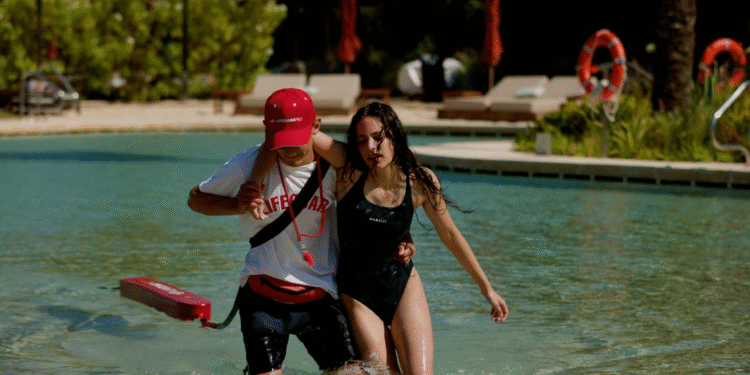The yearly cycle introduces us to different types of weather, each of which has its charm and flavor. It is upon us, the human beings, to make the most of each season according to our collective understanding. Winter has its charm with snow and Christmas bells, while the summer has its sunshine with hot rays of the sun and crowded beaches. As I am writing this in summer, the focus of my attention is summer right now and how we can enjoy this season.
Summer is a time typically filled with fun in the sun and playing on the sand with many people choosing to visit the seashores this time of year. For some people, summer means waiting all year to dash off to the beaches and away to the water. Sure, it is nice to be in the water and enjoy the waves, particularly on hot sunny days, but the water can also be unpredictable and, therefore caution and safety considerations when heading to aquatic locations must be taken into account.
In this piece we will look at safety tips for summer for those individuals ready to immerse themself in the water and enjoy the sun, sand and sea. So, let’s get started.
The First Line of Defense: Supervision and Talent
The greatest approach to avoid water mishaps is to always have a responsible adult overseeing water activity. Children are extremely susceptible; so, supervision entails more than just occasional glancing. It demands active and interested watching, being close enough to act quickly if something goes wrong. Adults, too, gain from peer control, especially when participating in activities like diving, snorkelling, kayaking, or in unknown waters.
Though only monitoring is not always enough. Swimmers should honestly assess their ability levels and refrain from stretching their physical boundaries. Taking swimming classes for all ages is a forward-looking measure of safety. Less prone to panic and more likely to respond quietly in an emergency, confident and well-trained swimmers are less prone to panic. Still, even accomplished swimmers can encounter problems; hence, understanding of lifesaving methods, such as those covered in lifeguard courses, is priceless.
Staying Safe in Pools
Particularly for families, pools are among the most frequented sites for refreshing oneself. Though their regulated surroundings might make them appear less threatening, the hazards persist. Among the dangers are deep ends, unsupervised access, and slippery surfaces. Practical safety measures include securing pool areas with childproof gates, applying nonslip mats around the edges, and keeping rescue equipment close at hand.
Professionally run pools should always have qualified lifeguards working. Not only do their presence discourage dangerous behavior, but they also offer instant help should an accident happen. Facilities should also make it a requirement to hire people who have finished formal lifeguard training courses since they have the required knowledge and abilities to avoid accidents.
The importance of lifeguard certification for community safety
Communities that give lifeguard certifications top priority usually have fewer water-related accidents. Certified lifeguards act as both educators and protectors. They learn how to spot risk indicators before events happen, as well as how to save lives. These experts serve as a front-line barrier against disaster wherever, including pools, beaches, or recreational water parks.
Vital techniques taught in lifeguard courses go beyond simply swimming. They address circumstances like spinal injuries, underwater rescues, delivering oxygen, and crowd control management during emergencies. These certifications enable people, including teenagers and young adults, to lead their society.
Remarkably, certified lifeguards also more frequently support safety awareness among swimmers, promoting risk-reducing activities. Their presence generates a safe environment where families can indulge in water activities without ongoing worry.
Final Thoughts: Give Safety Prime Attention This Season
Among the highlights of summer is water entertainment, but it should never come at the expense of safety. Being ready is the secret to a safe and memorable experience, whether you’re splashing in a pool, surfing the waves, or investigating a calm river. More than a caution, investing time in lifeguard training or urging family members to get lifeguard certification is a dedication to a society of responsibility and concern.
We convert water activities into possibilities for pleasure, fitness, and connection when we know the hazards and prepare ourselves with the information and resources to control them. Therefore, dive in this summer—but do it cautiously, with the tranquility brought on by preparedness and awareness.







